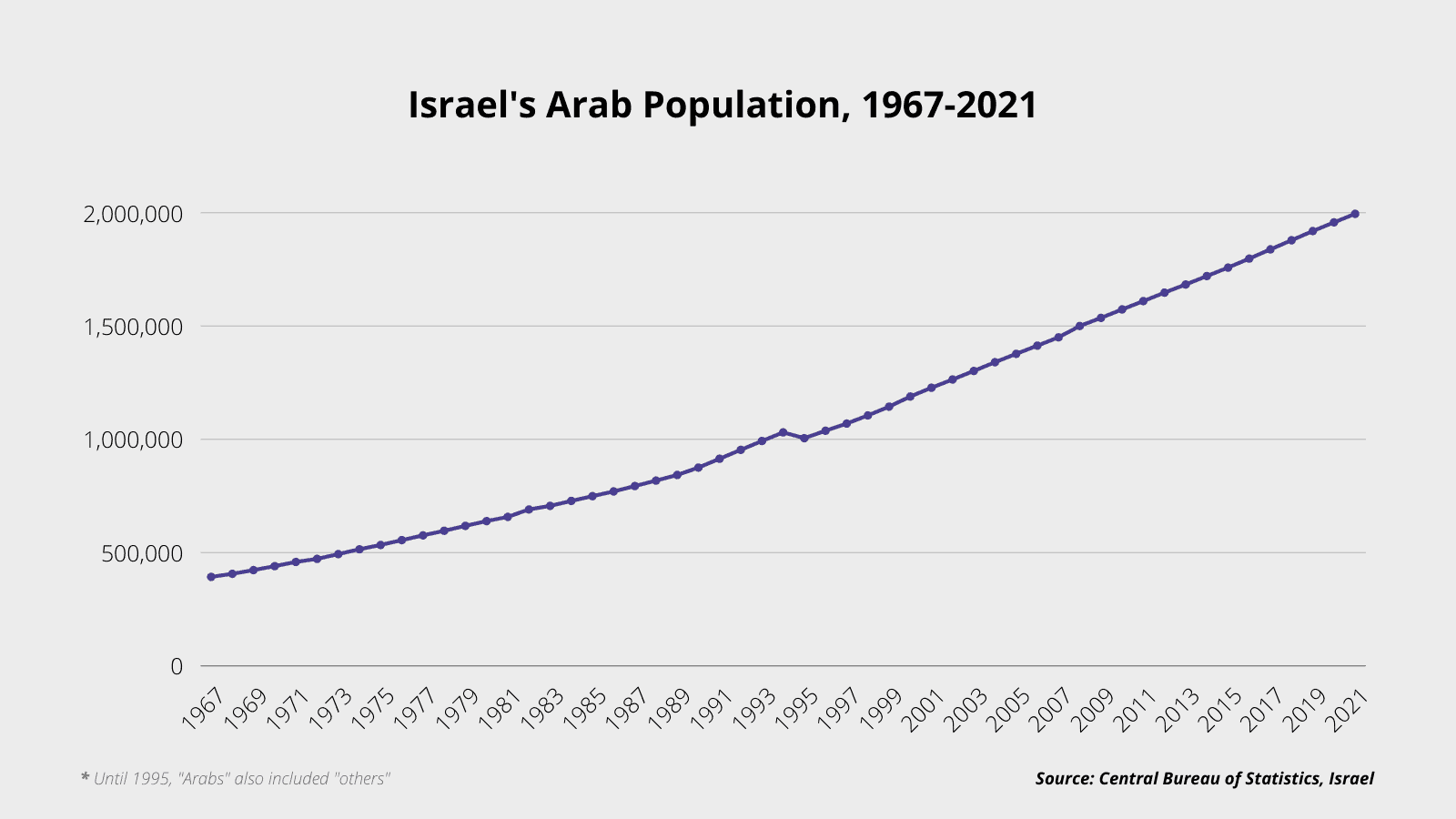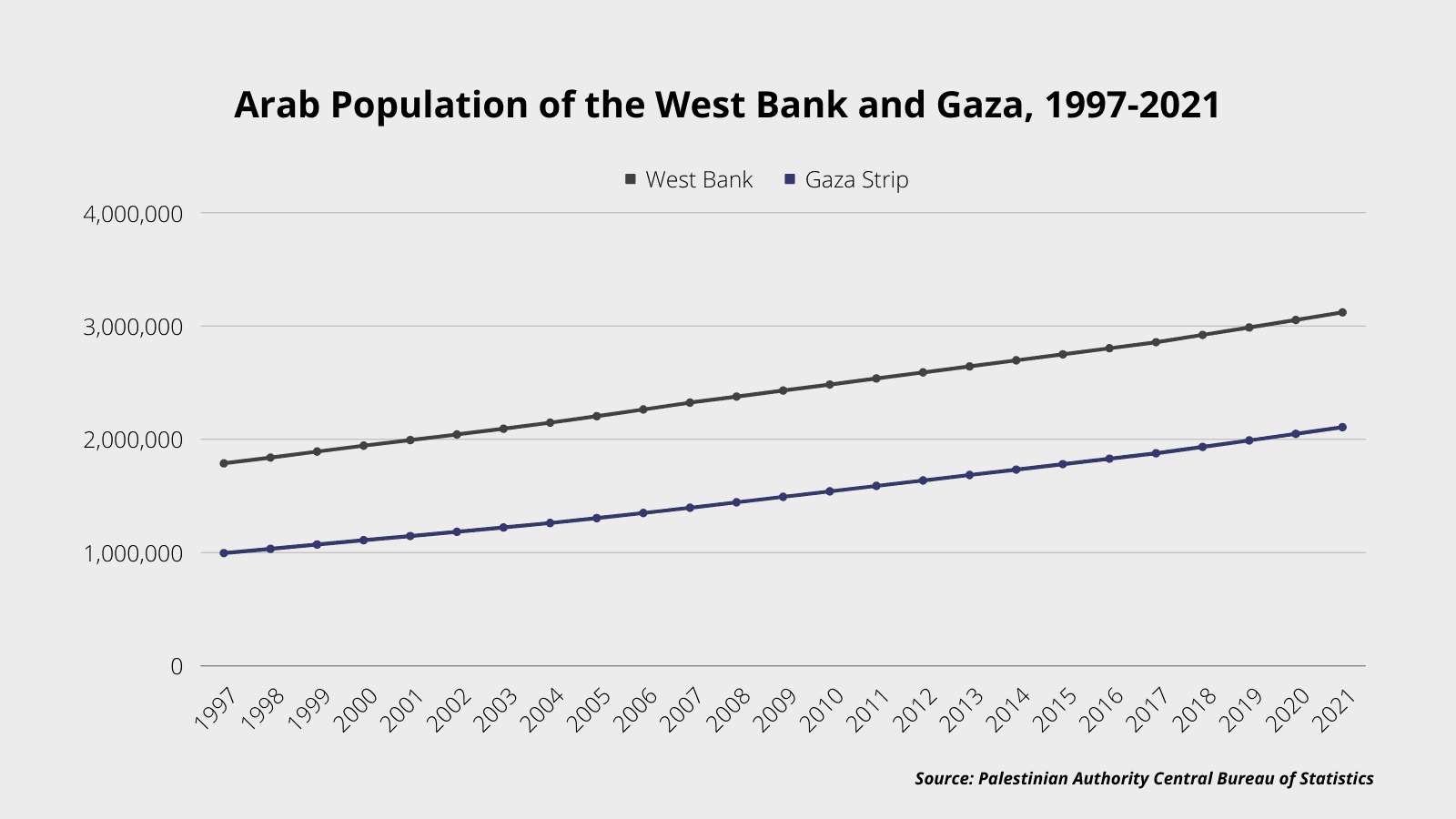One of the most pernicious lies that continues to be spread about Israel is the claim that the Jewish state has committed (and continues to commit) the crime of genocide against the local Arab population, including the Palestinians.
Whether it’s being advanced by Hollywood superstars like Mark Ruffalo, noted legal scholars, or United Nations officials, the genocide claim is one of the most popular and harmful libels about Israel to be spread in the 21st century.
Here we deconstruct the genocide libel.
What is Genocide?
The term “genocide” was coined in 1944 as a means of describing the atrocities that were then taking place in Nazi-controlled Europe as well as other instances of ethnic annihilation, such as the Armenian Genocide in 1915.
In 1948, the newly-formed United Nations adopted the Convention on the Prevention and Punishment of the Crime of Genocide, codifying the crime of genocide.
According to Article II of the Convention, genocide refers to a number of acts that are “committed with an intent to destroy, in whole or in part, a national, ethnical, racial or religious group.”
The acts, as enumerated by the Convention include killing, causing serious bodily or mental harm, inflicting conditions of life that would bring about the group’s physical destruction, imposing measures to prevent births within the group, or transferring children out of the group.
The Legal Genocide Libel
Those who accuse Israel of committing genocide tend to focus on a number of claims:
Claim: The exodus of 700,000 Palestinian refugees in 1948 (along with the killing of Palestinians during the Israeli War of Independence) is tantamount to genocide.
The charge is inapplicable as:
- There is no intent to destroy (in whole or in part) an ethnic, national, racial, or religious group;
- Any limited expulsion of Palestinian Arabs from certain areas was strategic and not motivated by genocidal intent; and
- Furthermore, the vast majority of Palestinian refugees evacuated those areas of their own accord (whether out of fear or at the behest of Arab leaders) and were not expelled by Israeli forces.
Claim: Israel is guilty of “incremental genocide” (slow genocide over a long period of time).
Once again the facts belie the accusation.
For Israel to be guilty of “incremental genocide,” the Palestinian population would have to be purposefully decreased by Israel.
However, a look at the population figures for Israel’s Arab citizenry as well as the Palestinians of the West Bank and Gaza shows a marked increase in these populations.
As one analyst put it, for Israel to be accused of genocide while the Palestinian and Arab Israeli populations are continually increasing would mean that the Israelis “appear to be the most incompetent genocidaires to ever walk this earth and are responsible for the only large-scale annihilation campaign in history where the victim population actually increased.”


Charge: Israel’s conduct during military operations is akin to genocide.
This accusation carries little weight.
While it is tragic whenever innocent civilians are killed in battle, Israel consistently tries to maintain low civilian casualty rates by forewarning the local population about impending strikes, calling off strategic strikes when civilians are identified in the target area, and using ground forces in high-density areas.
However, the IDF’s aim of refraining from harming civilians is hampered by the purposeful embedding of terrorists within civilian centers and the use of the local population as human shields by Palestinian terror groups.
Nevertheless, as pointed out by a number of analysts, the civilian casualty ratios during recent Israeli military engagements are some of the lowest in modern warfare, particularly when it comes to urban warfare.
Israel’s conduct, therefore, disproves the heinous accusation of Israeli genocidal intent during its military engagements.
In addition, there have also been claims that a “genocidal mentality” developed within pre-state Zionism.
Not only is this speculative accusation unfounded, but it is also laughable as Raphael Lemkin, the lawyer who first defined the term “genocide” and tirelessly advocated for the adoption of the Genocide Convention, was a pre-state Zionist who, in the 11 years between the creation of the Jewish state and his death in 1959, never expressed concern with Israel’s actions during the War of Independence or the early years of the state.
Related Reading: Beyond Biased Headlines: Disproving the Israel ‘Ethnic Cleansing’ Charge
The “Cultural Genocide” Fantasy
As Israel’s actions since 1948 do not come close to passing the legal threshold for genocide, some have claimed that Israel is committing a form of “cultural genocide,” asserting that Israel is attempting to destroy the Israeli-Arab and Palestinian societies through the disintegration of their cultures.
As the Anti-Defamation League has pointed out, this claim is a sort of “back door” through which to associate Israel with genocide even if its actions do not suit the legal definition.
However, once again, a cursory review of the evidence proves this accusation to be baseless.
The following are but a few examples of Israel’s support for Arabic and Islamic culture in the Jewish state:
- In the Knesset (Israel’s parliament), Hebrew and Arabic are the only two languages allowed to be spoken from the rostrum in the plenum.
- In 2016, the Knesset observed the first Arabic language day.
- Since 1988, the number of mosques in Israel has increased fivefold.
- In 2015, Israel’s first modern Arabic art museum opened in the northern city of Sakhnin.
Just like the claim that Israel is committing genocide, the accusation of “cultural genocide” is as nefarious, defamatory, and harmful to the integrity of the Jewish state.
Related Reading: Do Arab Israelis Really Suffer From Apartheid?
What Do the Lawyers Say?
While some lawyers and legal scholars have bent the legal definition of genocide and distorted facts in order to accuse Israel of this crime, most have not fallen for this fiction.
During the Israel-Hamas war in 2021, when accusations of Israeli genocide were spreading like wildfire on social media and other internet forums, the Jewish Telegraphic Agency interviewed a number of legal experts and lawyers about this claim.
Notably, Michael Sfard, an Israeli lawyer who advocates for Palestinian interests and has taken the Israeli government to court many times, told the reporter that he had not seen “a shred of evidence” for any Israeli leader possessing a genocidal intention towards the Palestinians and local Arabs (a legal prerequisite) and that such accusations “cheapen” the concept of genocide.
Similarly, Sari Bashi, an Israeli human rights lawyer and Palestinian rights advocate, disagreed with Israel’s actions in Gaza but said they were not genocide.
With the legal threshold of genocide not reached and the accusation of “cultural genocide” proven to be fiction, it is surprising that there are those in the legal profession who still accuse Israel of this crime.
As one analyst remarked, those who accuse Israel are saying a lot more about themselves than about the conduct of the Jewish state itself.
Liked this article? Follow HonestReporting on Twitter, Facebook, Instagram and TikTok to see even more posts and videos debunking news bias and smears, as well as other content explaining what’s really going on in Israel and the region.



